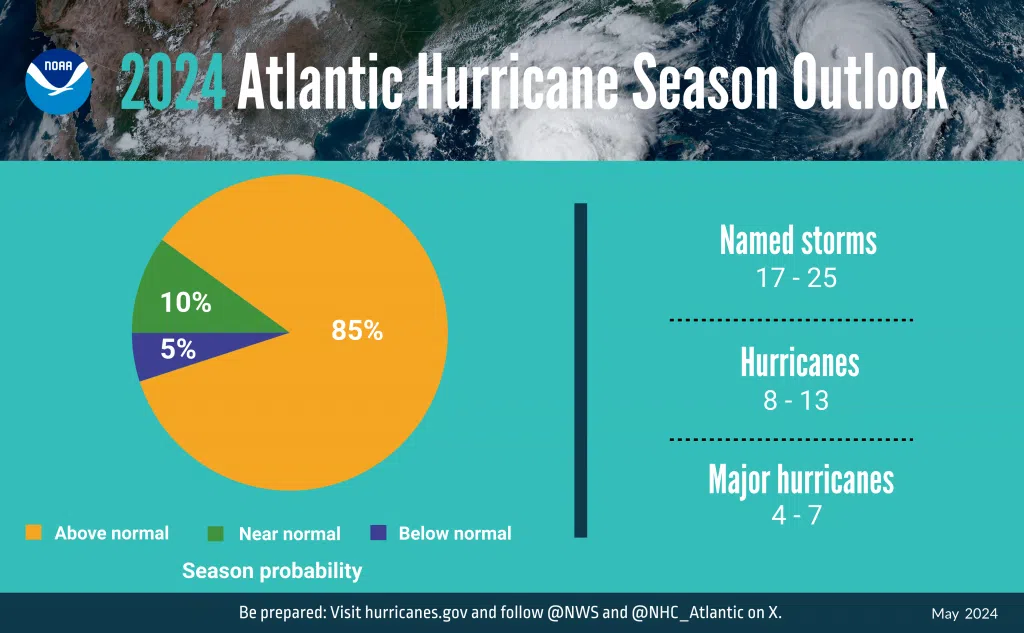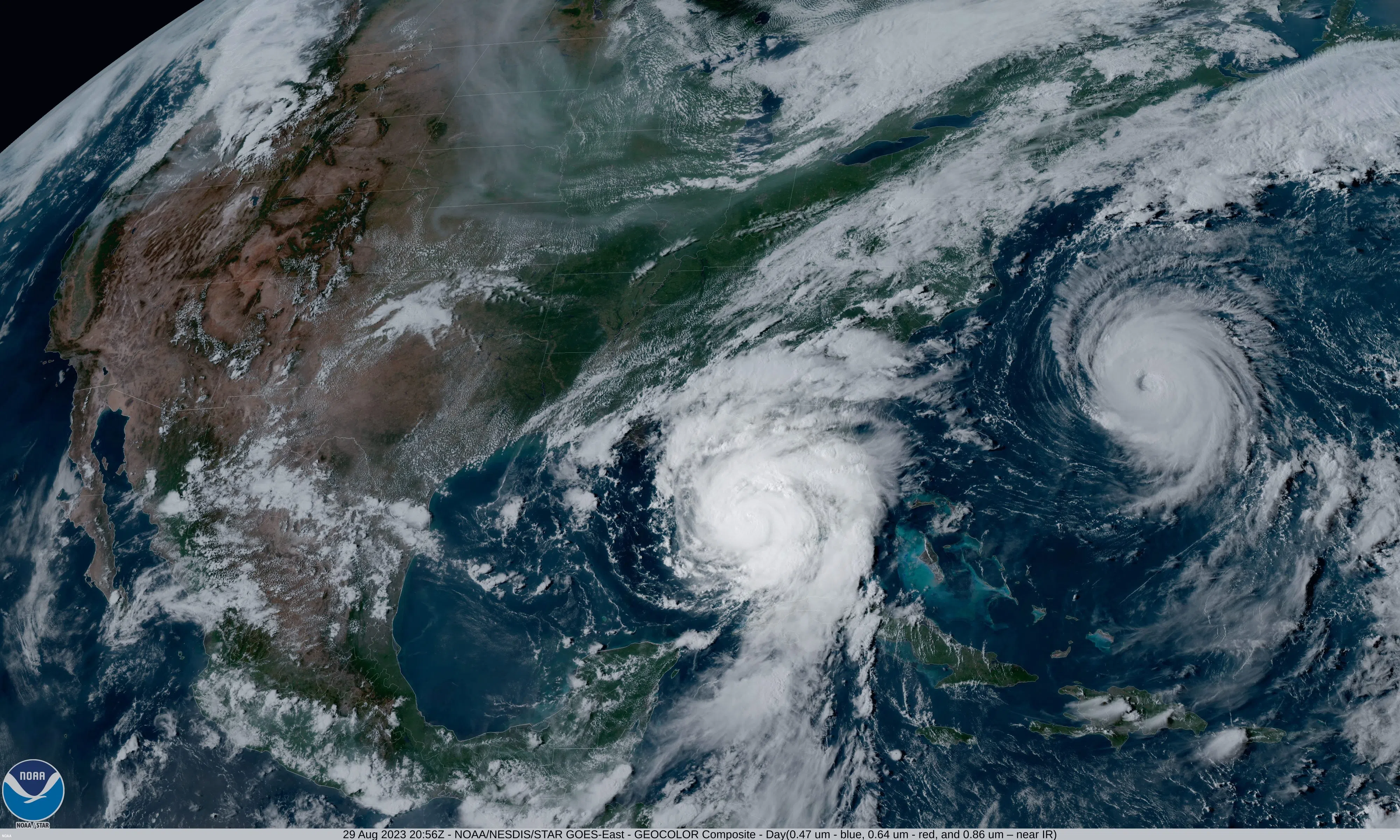Forecasters in both Canada and the United States are expecting a very active Atlantic hurricane season this year.
The U.S. National Oceanic and Atmospheric Administration (NOAA) released its annual forecast on Thursday.
It predicts an 85 per cent chance of an above-normal season, a 10 per cent chance of a near-normal season, and a five per cent chance of a below-normal season.
NOAA is forecasting between 17 and 25 named storms (average of 14) this season. Eight to 13 of those (average of seven) could become hurricanes, including four to seven (average of three) major hurricanes.
Bob Robichaud, a meteorologist with the Canadian Hurricane Centre, said there are a couple of contributing factors.
“Not only are we getting rid of that El Nino that we had last year but the water temperatures are at record values in the tropical Atlantic right now,” Robichaud said during a news conference on Thursday.

As the most recent El Nino nears its end, forecasters predict a quick transition to La Nina conditions, which are conducive to Atlantic hurricane activity.
La Nina tends to lessen wind shear in the tropics, which scientists say allows hurricanes to grow in strength.
While the overall season is expected to be busy, Robichaud said it is too early to say how the Maritimes will be impacted.
“We do have to wait until they actually form because where these storms go really depends on the weather of the day,” he noted.
Around 35 per cent of Atlantic storms end up in the Canadian Hurricane Centre’s response zone, said Robichaud, but not all will have an impact on land.
On average, the Canadian Hurricane Centre responds to three or four tropical cyclone events each year, with one or two of those having impacts on Canadian soil and another two or three threatening offshore waters.
The hurricane season officially runs from June 1 to November 30, with the bulk of the tropical cyclone activity usually occurring from August through October.






